Critically Endangered Woylie
You may have heard of the Bettong, which are common along the coast of QLD, Northern NSW and Tasmania. Meet the Bettong's western cousin the Woylie or the Brush Tailed Bettong.
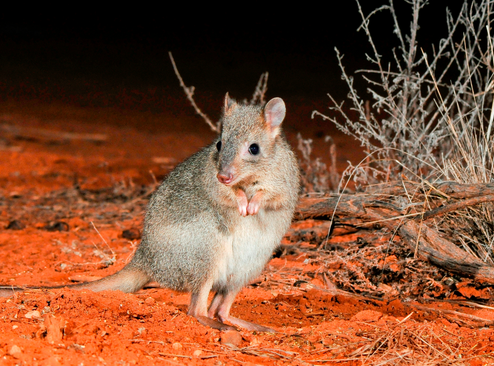
Scientific name - Bettongia penicillata
This species cornered in a strong hold in the Southern Dry sclerophyll forests of Western Australia.
For a species to be recorded as critically endangered by the UICN a species must lose 90% of its population in under 10 years. For the Woylie this reduction in population was been due to the introduction of foxes and feral cats into these dry forest habitats.
Description
The Woylie is a small Nocturnal rabbit sized Marsupial Macropod. Covering its back is a light sandy brown fur that darkens into a black on the tail. This species has a white, grey creamy under belly and hind legs. Standing upright like a kangaroo to bound and travel distances, but capable of leaning onto all fours to forage for food. The body grows to 300-380mm, with a prehensile tail that grows to 290-360mm. This tail can be used grasp and gather grasses and sticks for nesting material, much the same as a monkeys tail would be used to grasp branches.
Weight 1.1 - 1.6kg
Life Span 4-6 years
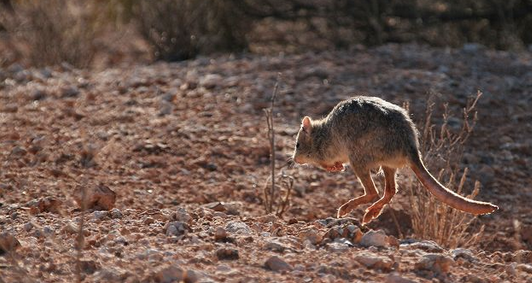
Behaviour
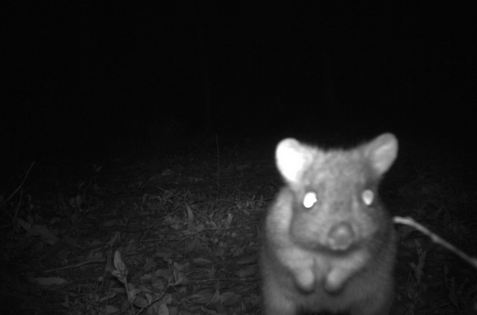
A nocturnal species uses the darkness of night and cool tempreters to forage and hunt down prey. They are a solitary species that cover a home range of 20 hectares, having 3 - 4 usable nests in that range. Woylies build well-concealed domed nests made from shredded bark and grasses.
Habitat
Western Australia's
Dry Sclerophyll forests and woodlands with lots of cover.
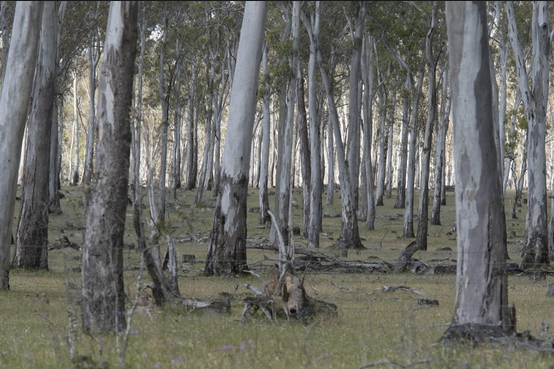
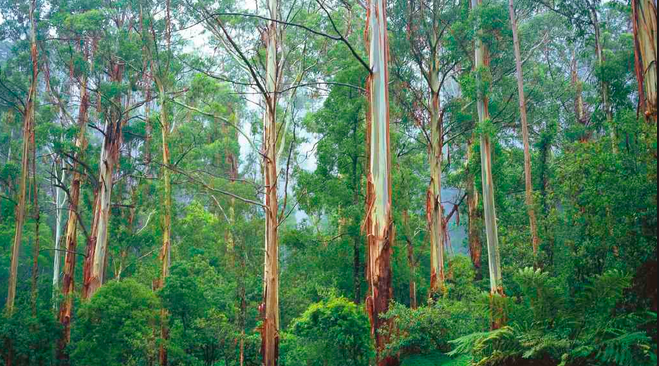
This habitat is home to a number of endangered and threatened species that share the land with the Woylie.
Tammar Wallaby
Numbat
Red Tailed Phascogale
Brush Tailed Phascogale
Quokka
Western Pygmy Possum
Food
This species forages for bulbs, insects, seeds, resin and underground fungi.
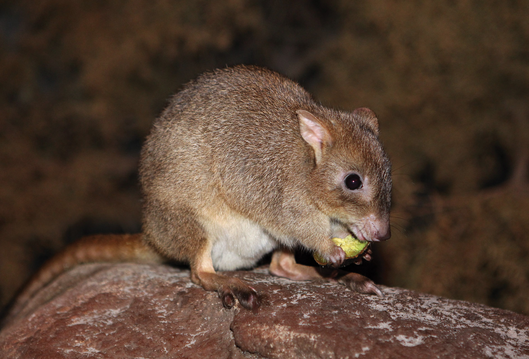
Breeding
The Woylie sexually matures early in life at 5-6 months old, breeding all year round this species can have 2-3 litters each year. Like Macropods such as wallabies and kangaroos, Woylies are pregnant all year round. The embryo stays dormant until the pouch is empty. The mother gives birth to 1 joey per litter, who remains in the pouch for 14 weeks, suckling at foot for up to 4 weeks.
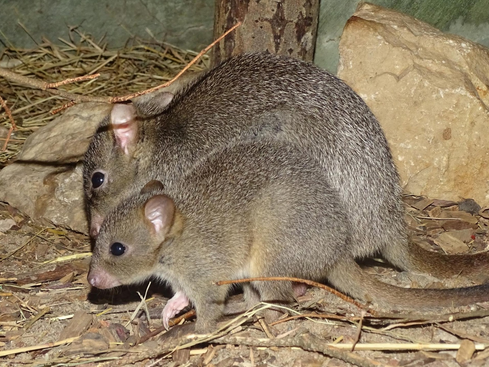
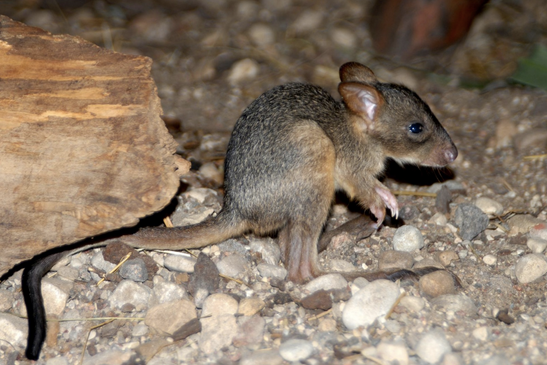
Threats
Introduced Foxes and cats have decimated the Woylie's population. All three species are nocturnally active, this is a constant threat to the Woylie who stand defenseless against introduced predators.
Land and forest clearing posses a second significant threat to the species. This species is only located in such a small location in Western Australia, more pressure on their habitat will result in a further decline of the species.
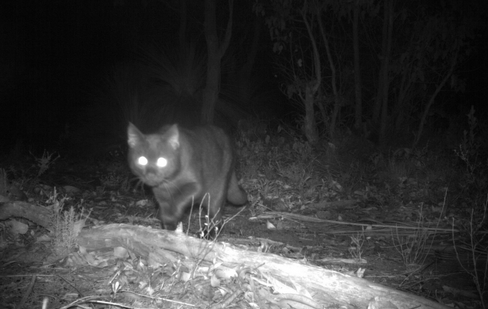
Help
Right now as we speak a feral cat and fox fence is being implemented around the woylie's habitat. This aims to prevent anymore unnecessary deaths from introduced species. Aiding the species populations recovery, as well as a habitat that can be carefully studied.
You can Volunteer
Up Vote and share this article
Congratulations @benjaminobrien! You have received a personal award!
Click on the badge to view your Board of Honor.
Do not miss the last post from @steemitboard:
Congratulations @benjaminobrien! You received a personal award!
You can view your badges on your Steem Board and compare to others on the Steem Ranking
Do not miss the last post from @steemitboard:
Vote for @Steemitboard as a witness to get one more award and increased upvotes!